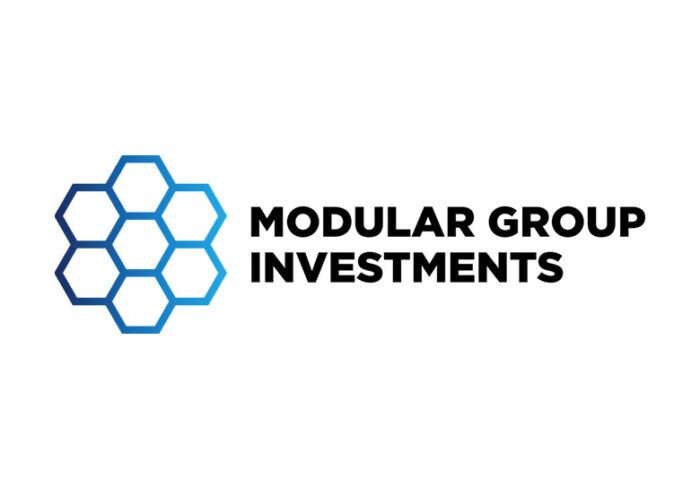
The homes of the future will be modular – and we want to help make them
Modular Group Investments (MGI for short) might be a relatively new presence in UK construction, but it’s already making waves, having completed several major acquisitions this year already.
Here, Chairman Chris Butters gives his thoughts on the rapidly changing modular construction market, and MGI’s role within it.
Chris’s skills and experience
Chris, MGI is a fairly young venture, but you’ve made a major impact already. How did you first become involved, and what skills and experiences do you bring to the table?
“MGI itself is certainly a new holding company, but our operating subsidiaries have long and proud histories. For instance, Euramax is 70 years old, that’s a lot of knowledge and experience in delivering quality products.
My own background is in corporate finance, and for over 20 years I was a mergers and acquisitions partner at PwC. Since then, I’ve taken non-executive director roles in a range of organisations, including a housing association, a school and a local authority, so I’m no stranger to the built environment.
MGI came together in a very twenty-first century way. Michael Garratt, founder, reached out to me on LinkedIn. Michael is a former housebuilder who’s extremely passionate and socially engaged, so we found a lot of common ground and agreed on our business plan, values and approach very quickly.”
How the Modular Building market is changing
Modular building has been around for decades – why start MGI now? How is the market changing, and how do you expect it to develop in the years ahead?
“You’re right that modular and offsite techniques have been around a very long time. The thousands of prefab buildings that were constructed after the war were essentially very early modular housing. Although, they probably did the reputation of the sector few favours.
However, the modular market as we know it today has really developed over the last decade or so.
Initially, we started to see the emergence of small, enthusiastic modular construction companies. Back then, modular was still very niche, and their impact on the sector as a whole was limited.
However, over the last three years, that situation has begun to shift very quickly. There are now a number of major modular construction specialists, and money is starting to pour into the sector. Top Hat received a significant investment from Goldman Sachs. While others such as Ilke and L&G are investing heavily in new capacities.
There are also many manufacturers of smaller modular pods providing solutions for homelessness. As well as home offices and gyms (all very relevant in the post-Covid work from home era) which appeal to housing providers.
Much of this is driven by the shortage of housing we face in the UK. Every year we fall behind the Government targets for new builds.
In parallel, the affordability of housing is becoming more problematic, and perhaps modular can offer a model that can help address some of these market failures.
At MGI, we’re confident that modular will soon become the mainstream method of construction in the UK. As housebuilders around the country grapple with a chronic skills shortage, materials shortages, the enormous disruption brought about by COVID. It seems the staggering challenges posed by climate change, the arguments for modular will become impossible to ignore.”
Modular Group Investment’s Achievements
What exactly does MGI want to achieve?
“Our aim is to bring together a range of outstanding componentry businesses that can all feed into the UK modular building sector. We see this as a distinct specialism to support production lines and the implied de-skilling of construction.
There will always be a place for highly skilled trades on traditional sites, but the demand for a more systematised approach in modular is growing.
Euramax Solutions, our first major acquisition, gave us a fantastic start, as an already well-established high-volume uPVC window and door manufacturer. Filled with decades of experience servicing the holiday home market, a sector with a lot of similarities to modular due to its factory-based techniques.
We’re now looking to expand our offering on the aluminium side. This year, we’ve launched our Euralite brand, a range of cladding and decking products that combines all the benefits of aluminium with a range of aesthetic options, including authentic timber-look. We will also be adding aluminium windows to our range.
In the future, we want to grow our offering even further by adding balconies, steel components, and a range of other products commonly used throughout the modular sector.”
What businesses we want to acquire
What kind of businesses are you looking to acquire? What criteria will a company have to meet to be considered?
“We like businesses that are profitable, probably with at least £3m in revenue, and that are operating some spare capacity. We’re open to discussion, but owners need to have a clear reason for sale, so there’s traction and momentum there. Ultimately, we’re buying for growth.
Whilst we’re focussed on the modular opportunity, we can help businesses diversify their customer base, so new acquisitions don’t necessarily need to be modular or offsite specialists.
We’d encourage anyone who’d like to know more to reach out!”
If you have any thoughts or questions please do feel free to email us at info@modulargroupinvestments.co.uk.
